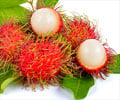For a long time it has been believed that the immune response provoked by bacteria triggers ageing and hastens death, but a study of fruit flies has now found evidence to the contrary.
Led by John Tower, Associate professor of molecular and computational biology at the University of Southern California, a team of researchers compared fruit flies to ones kept in an axenic (bacteria-free) environment.It was found that flies scrubbed clean of bacteria did not outlive their grubby siblings.
“The surprise was that the flies grown under axenic conditions and the normal flies had the same life span,” Tower said.
The new finding challenges the conventional wisdom that even harmless bacteria suck up the energy of the host organism and hasten its death.
“It seemed like it was dogma that if the organism has to spend energy doing something, it should shorten the animal’s life,” said USC biologist Steven Finkel, the co-author of the study published in the journal Cell Metabolism.
The researchers believe that the new findings may be relevant to human ageing research because in both flies and humans, the number of bacteria living on the organism increases with age. Furthermore, the innate immune response to bacteria is similar in flies and humans, and it loses strength with age in both species.
Advertisement
“I think a lot of people would just assume that if you’re increasing bacterial load in an aging human, it must be bad. And it might not just be bad, it just might be. Prior to this study, I would not have thought that,” Finkel said.
Advertisement
“We want to determine what limits the life span of the fly, or any other animal,” Tower said.
Source-ANI
LIN/J











